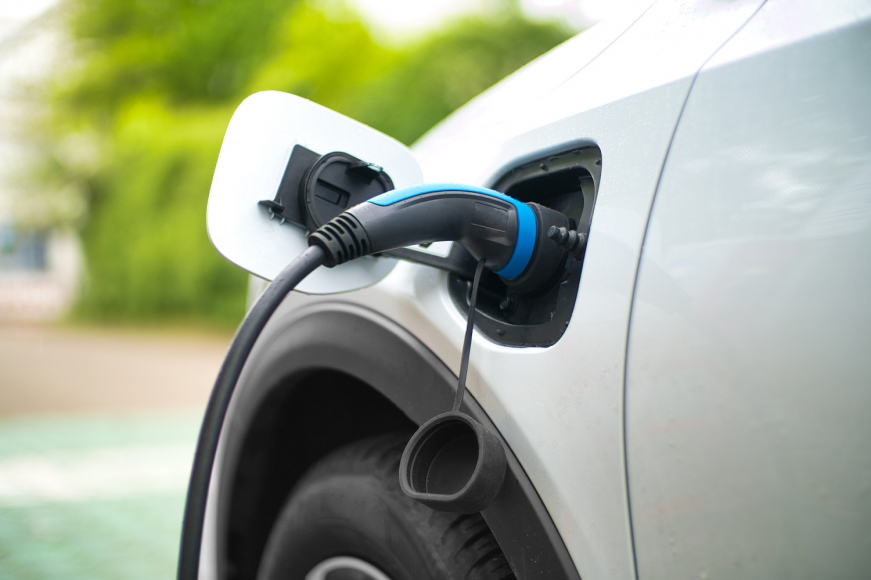EHS issues are always in flux and we have to keep an eye on the long term. On the heels of the rollbacks under the Trump administration, sustainability and global climate change are at the forefront again. At the COP26 climate summit in Glasgow, President Biden called climate change “the challenge of our collective lifetimes; the existential threat to human existence as we know it.”
He went on to say:
And every day we delay, the cost of inaction increases. So let this be the moment that we answer history’s call here in Glasgow. Let this be the start of a decade of transformative action that preserves our planet and raises the quality of life for people everywhere.
It’s been a busy year for the Biden administration and there’s been a lot of progress on his environmental policy since the start of his term. Let’s run through the most significant EHS and sustainability initiatives of his first year and take a look at what lies ahead.
Global Cooperation
The Biden administration has renewed and fortified America’s commitment to battle climate change globally.
Paris Agreement
The Paris Climate Accord, also known as the Paris Agreement, is a legally binding international climate change treaty started in 2016. One of the principal aims is to reduce global warming to 1.5 degrees celsius or less. In June 2017, President Trump announced the decision to remove the U.S. from the Paris Agreement. After his election, Biden reinstated the US as an active partner in the treaty.
2021 G20 Summit
Biden emphasized the need for aggressive action to slow global warming at the 2021 G20 Summit in Rome. The G20 Summit gathers leaders from the top 20 world economies to discuss global economic, political, health and ecological issues.
For some, the G20 Summit fell short of expectations for meaningful climate change initiatives. Biden reported frustration with China and Russia’s contributions, saying, “The disappointment relates to the fact that Russia and … China basically didn’t show up in terms of any commitments to deal with climate change."
United States Legislation
This November, the House passed a $1T infrastructure spending bill called The Bipartisan Infrastructure Deal. The bill funnels funds to the grid, public transit, clean water, and more.
- Public Transit: Along with repairs for current public transit vehicles and infrastructure, the deal includes investment in sustainable transportation to help reduce greenhouse gas emissions. In addition, thousands of transit vehicles will be replaced with zero-emission vehicles.
- Electric Vehicle (EV) Infrastructure: The U.S. will build the first-ever national network of EV charging stations. The deal provides funding to install EV chargers along highway corridors and increase the range of EV travel. There are special provisions for rural and hard-to-reach communities.
- Clean School Buses: There will be a distribution of zero- and low-emission school buses across the country.
- Airports, Ports, and Freight: Funding is provided to address repair and maintenance backlogs, reduce congestion and emissions near ports and airports, and increase the use of low-carbon technologies.
- Climate Resilience: The deal aims to improve the resilience of physical and natural systems in the wake of natural disasters, which often occur due to climate change.
- Clean Drinking Water: Funding is provided to expand access to clean drinking water, eliminate lead service lines, and clean up PFAS (Per- and Polyfluoroalkyl Substances).
- Legacy Pollution: Cleanup for Superfund and brownfield sites, reclamation of abandoned mines, and the capping of orphaned oil and gas wells are called for in the bill.
- Clean Energy Transmission: The bill creates a new Grid Deployment Authority for Research and Development into sustainable energy and smart grid technologies. Upgrades to support the expansion of renewable energy will be made.
What this will mean for EHS managers and sustainability leaders remains to be seen, but we can continue to prepare for the changes coming our way. Ben Hansen of Antea Group explains that the focus on infrastructure will mean that “License to operate issues will be getting greater attention through an environmental and social lens.”
As scrutiny around climate issues increases, Ben says: “Environmental justice issues will be a driving theme for regulatory bodies to understand before approving new and improved infrastructure plans. Understanding the social and environmental impact of each project will be essential to the success of any implementation efforts.”
United States Climate Goals
The Build Back Better Framework spending bill that is currently stalled as Congress seeks to address numerous social and political issues along with ambitious climate change provisions.
The Biden administration states that it is meant to be enacted in tandem with the Bipartisan Infrastructure Deal. It is unclear if the climate change goals can be achieved if the bill doesn’t pass or is trimmed too much. For the time being, the Biden Administration is standing by three major climate change goals:
- Reduce Emissions by 50-52% from 2005 levels in 2030
- Create a 100% carbon pollution-free power sector by 2035
- Net-Zero Emissions by 2050
Even if there are difficulties meeting the three goals or they ultimately fall short, Biden has shown that aggressive climate change policy can be viable in the United States.
Make the Choice
EHS managers should expect to see climate change top of mind across industries, not just in political or regulatory spheres. As we explained at the start of Biden’s administration:
It isn’t just regulation and policy compelling businesses everywhere to play their roles in countering climate change. Customers, employees, investors, and stakeholders everywhere are keeping a close eye on companies’ sustainability efforts. We’re being challenged not just to meet the minimum standards but to visibly go above and beyond.
More and more political leaders are taking on climate change and sustainability goals and pushing for global cooperation. What once seemed like a green pipe dream is now being put into action. As Biden said at the COP26, “We can do this. We just have to make a choice to do it."
Choose Antea Group’s sustainability consulting services to help you achieve your goals.
Want more news and insights like this?
Sign up for our monthly e-newsletter, The New Leaf. Our goal is to keep you updated, educated, and even a bit entertained as it relates to all things EHS and sustainability.
Get e-NewsletterHave any questions?
Contact us to discuss your environment, health, safety, and sustainability needs today.





